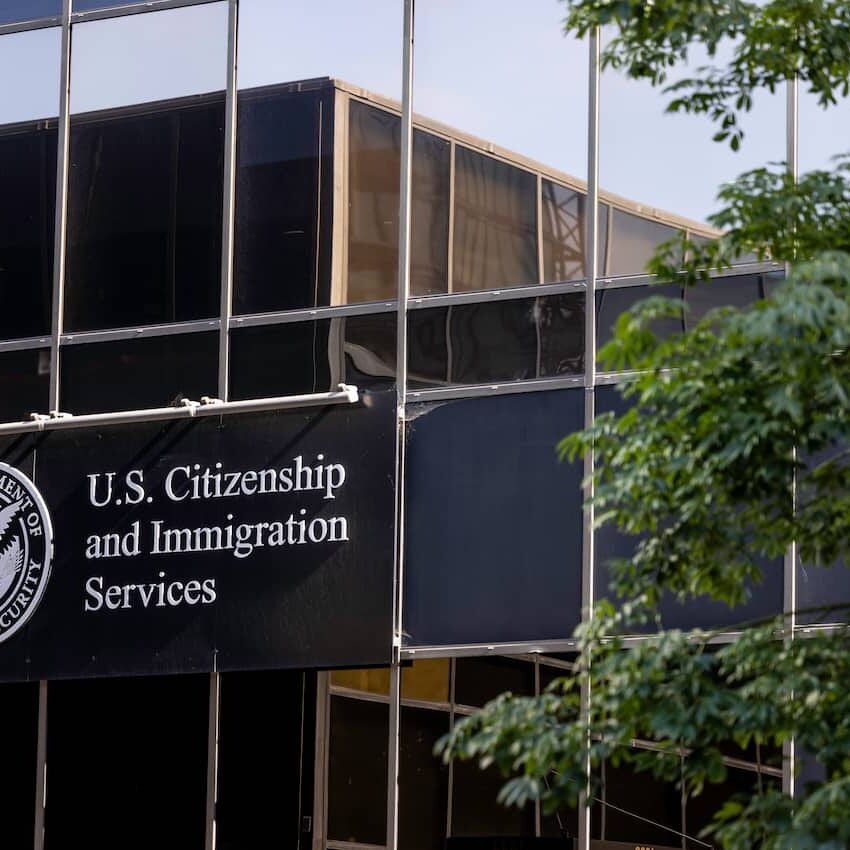
Two Different Processes: Consular Processing vs. Adjustment of Status
If you are interested in pursuing a green card through marriage to a U.S. citizen or a green card holder, you can do that in one of two ways: consular processing or adjustment of status. One process takes place while your foreign-born relative is outside the country and the other process takes place while your relative is here in the United States. Each of these processes has pluses and minuses.
Consular Processing:
- This is a good option when the immigrant spouse is residing outside the country. Submitting a marriage-based consular processing application allows the spouse to be interviewed in his or her country of origin or residence, receive an immigrant visa, and then enter the United States as a lawful permanent resident. The immigrant receives the green card after being admitted into the United States.
Adjustment of Status:
- This is an attractive choice when the spouse is already living in the United States. An immigrant who was inspected and either paroled in or admitted to the United States may submit an application to become a permanent resident while remaining here. Please note that if the immigrant spouse entered the country illegally, committed fraud to enter the country, or has violated U.S. immigration laws in another way, he or she may need a waiver of that violation before being allowed to become a green card holder.
Filing an Adjustment of Status Application
When filing for adjustment of status, you submit multiple forms at the same time: Form I-130, Form I-485, Form I-765, and Form I-131. Form I-130 is the petition that establishes the spousal relationship. Form I-485 is the application that allows the immigrant to adjust his or her status to become a permanent resident. Form I-765 is the application for a work permit, and Form I-131 is the application for permission to legally travel in and out of the United States before becoming a green card holder (if it is safe for the person to travel out of the country – sometimes traveling outside of the country can trigger an immigration consequence). The associated government filing fees and biometrics fees must be filed with these forms, as well.
After filing these forms, the immigrant will receive receipt notices for each application. These notices will have receipt numbers that can be used to track the status of each case. A few weeks later, the future green card holder will be required to have his or her biometrics taken. This means that immigration will take the individual’s photograph and fingerprints in order to run a background check.
Then, several months after the applications have been filed, the individual should receive permission to work and travel internationally. After this, immigration will schedule the intending immigrant for an interview at his or her local U.S. Citizenship and Immigration Services (USCIS) office. This interview will serve allow a USCIS officer to verify the validity of the relationship, interview each spouse about the relationship, and to confirm the information submitted in the forms and supporting documents. If the officer is satisfied that the relationship was entered into for the purpose of building a life together, and not for the purpose of evading immigration laws, then the application will be approved and the immigrant spouse will become a green card holder.
Evidence of Bona Fide Marriage
The couple is required to submit proof that the marriage was entered into in good faith. This requires a submission of documentary evidence, including:
- Birth certificates;
- Marriage certificates;
- Wedding announcements;
- Leases to apartments or a deed to a house that include the names and signatures of both spouses;
- Joint bank accounts;
- Joint credit card accounts;
- Joint utility bills;
- Joint insurance policies in the names of both spouses;
- Joint automobile registration;
- Drivers’ licenses with matching addresses; and
- Photographs of the couple together throughout the course of the relationship.
The purpose of these documents is to show the officer that the couple has co-mingled their finances, that they live together, that they represent themselves to the world as a couple, and that their relationship is based on real romantic feelings for one another.
If the officer believes that the relationship is fake, this can have very serious consequences.
Non-Citizen Petitioners
The process of obtaining a green card for the spouse of a U.S. permanent resident is more time-consuming. Congress limits the number of this type of visas that can be issued yearly. As a result, applicants must wait for a visa number to become available before proceeding. Applicants can wait months, or even years, before obtaining a green card through this method.
Conditional Green Cards
In cases where a couple petitioning USCIS for a green card has been married for less than two years at the time of their interview, the immigrant spouse will be issued a conditional green card. The conditional green card holder has all the same rights and responsibilities as a regular green card holder. However, two years from the date of issuance of the conditional green card, the couple will be required to submit an application to remove the conditions on the green card holder’s permanent resident status. This application is filed through Form I-751 and must be submitted within 90 days of the 2-year green card’s expiration date. Essentially, immigration is asking the couple to prove that the marriage is still valid – that the couple still has joint finances, still lives together, and still represents themselves to the world as married.
In the event that the marriage has ended through death or divorce prior to the two year mark, the immigrant spouse may be eligible for a waiver of the joint petition requirement.
Additional Interviews
If USCIS still has suspicions about the legitimacy of a marriage, the couple may be called in for a second interview. In these types of interviews, an immigration officer puts the spouses in separate rooms and asks each party a specific set of identical questions in an effort to see if the answers are the same. Too many inconsistencies in the interview may lead to a denial of the immigrant spouse’s green card and possible deportation.
Work with a Los Angeles Marriage Green Card Attorney
Obtaining a green card can be difficult, so if you or a loved one is interested in relocating to the United States, it is vital that you retain the services of a dedicated attorney who can ensure that your rights are protected. Please answer a few questions and see if you qualify for a case evaluation.
